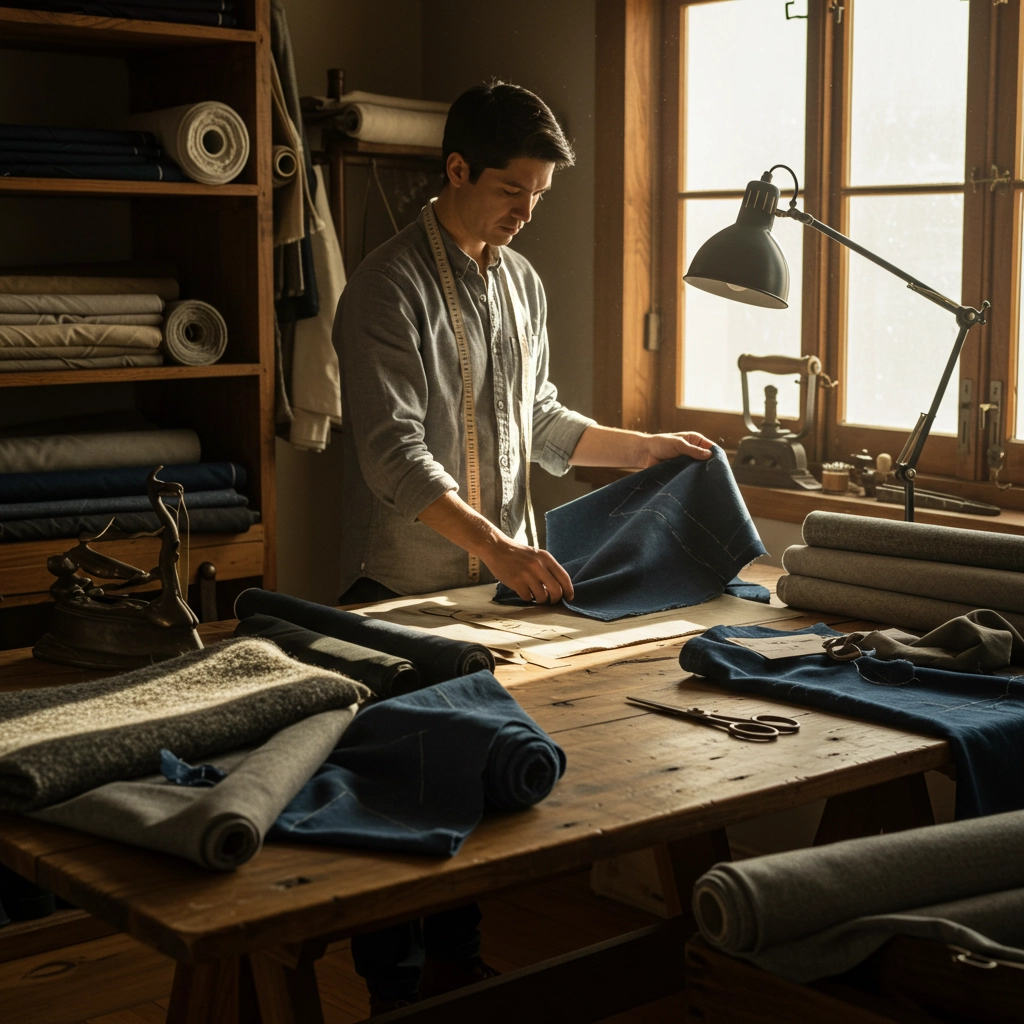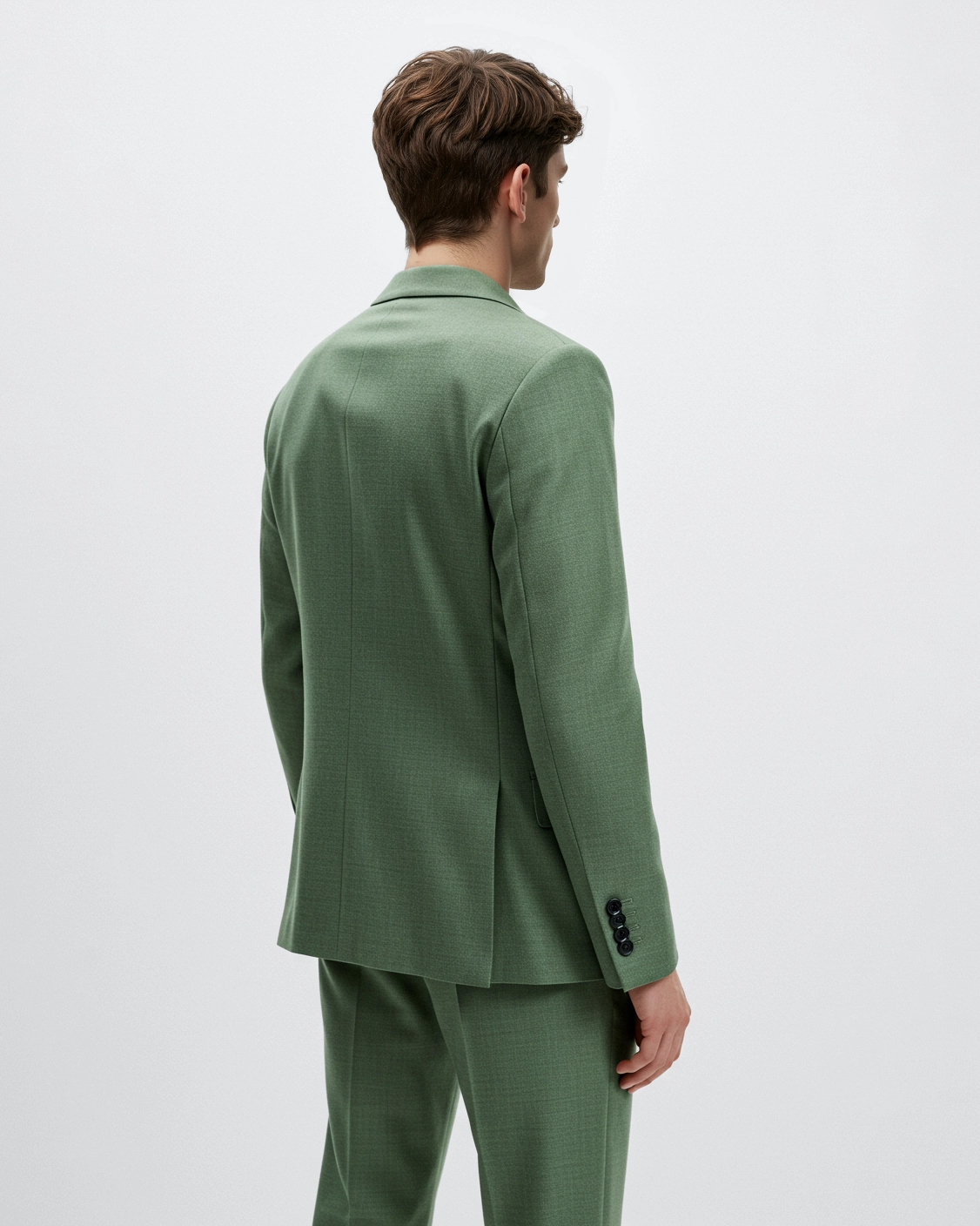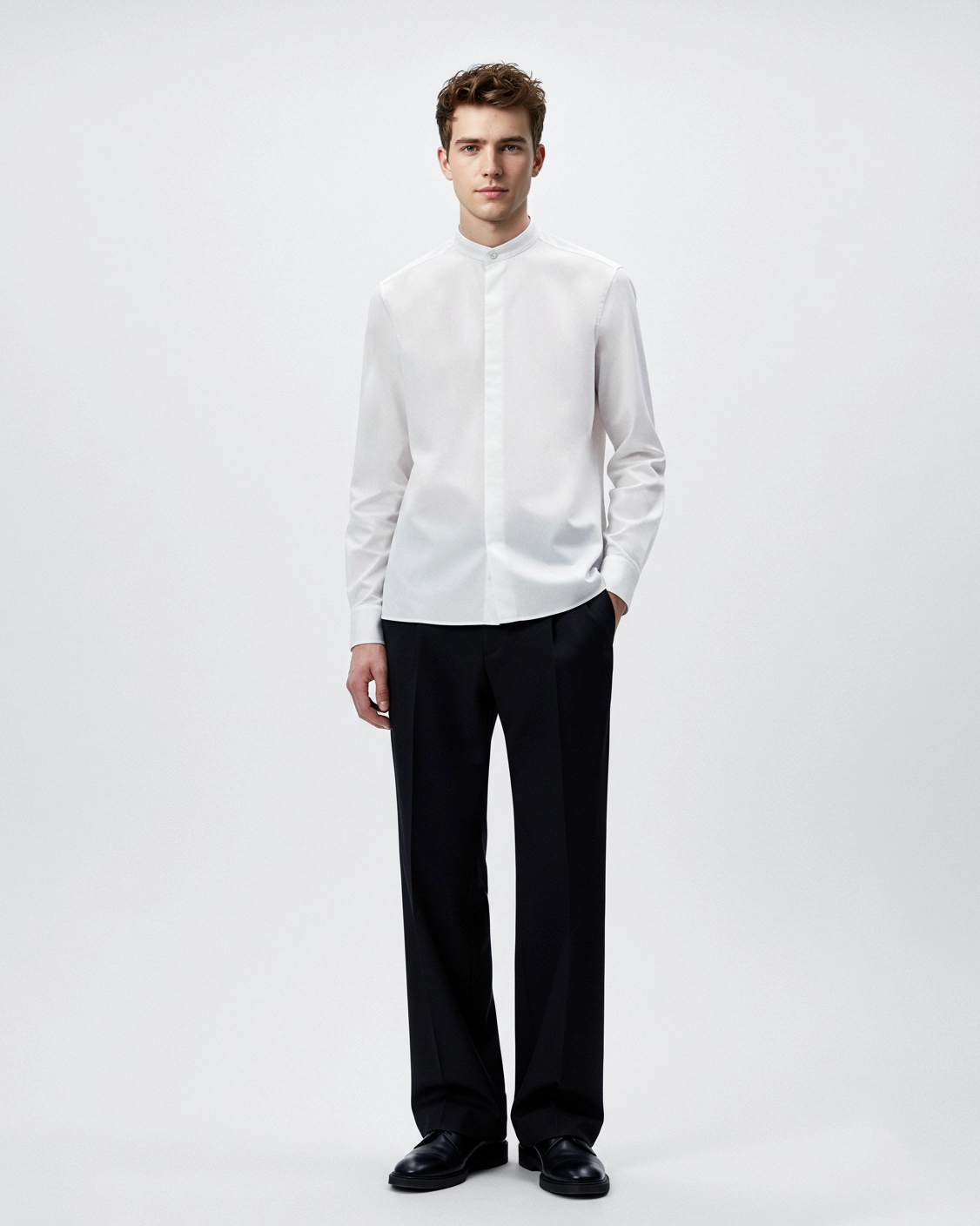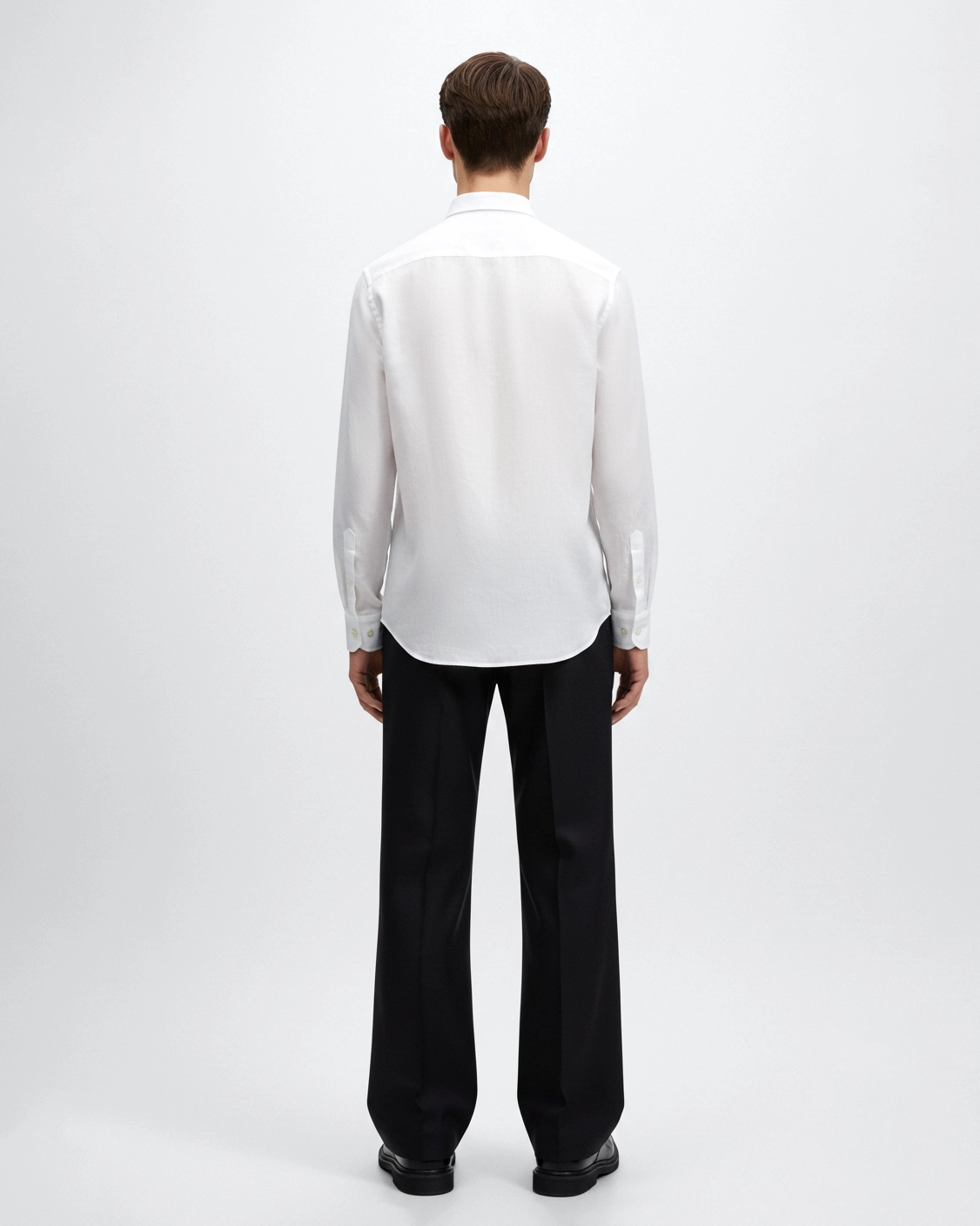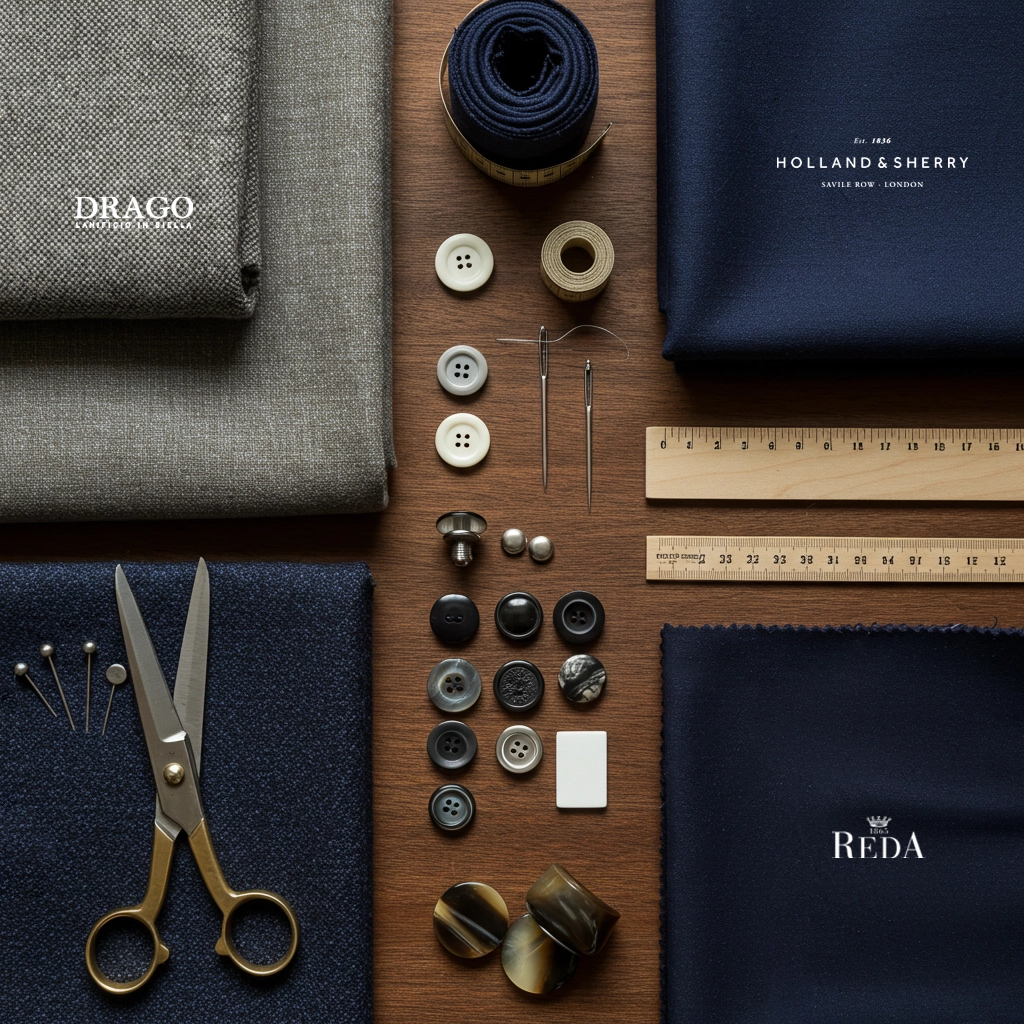Why Do Regional Fabrics Add Authenticity to Bespoke Tailoring?
In the realm of bespoke tailoring, craftsmanship and individuality are paramount. Central to this journey is the choice of fabric, which significantly impacts a suit’s authenticity. Regional fabrics, with their unique textures, histories, and cultural significance, dramatically enhance the bespoke experience. This holds true for both bespoke men’s clothing and women’s tailoring, where fabric choices can reflect personal identity and cultural appreciation. In this article, we explore the importance of regional fabrics in bespoke tailoring, examining how they contribute to a suit’s authenticity and the emotional connection clients develop with their clothing.
The Importance of Authenticity in Bespoke Tailoring
-
- The heritage craftsmanship: Authenticity in bespoke tailoring refers to the genuine expression of identity and craftsmanship through clothing. It enhances the client’s experience and adds intrinsic value to the garment. An authentic bespoke suit carries not just the measurement of the wearer but also the influence of regional heritage, making it unique to its owner.
- Emotional connections to fabrics:
- For example, choosing a Harris Tweed from Scotland connects the suit to the rugged landscapes and local craftsmanship of the Scottish Isles. This connection can evoke emotional responses, making a suit feel more special and personal. Authenticity also plays a vital role in the long-term relationship between the client and the tailor, where the story of the fabric becomes part of their journey together.
-
- In a marketplace often saturated with mass-produced clothing, wearing a bespoke suit crafted from regional fabric distinguishes individuals, giving them not just a piece of clothing, but a statement of identity and heritage.
What Are Regional Fabrics
Regional fabrics are textiles that originate from specific geographical areas, each bearing the influences of their local culture, climate, and traditions. These fabrics are often produced using techniques that have been passed down through generations, allowing them to retain a distinct character and quality.
Examples of regional fabrics include:
- Harris tweed: Handwoven in the Outer Hebrides of Scotland, known for its durability and warm textures. Harris Tweed is characterized by its traditional patterns, including herringbone and checks, which showcase the craftsmanship of the weavers and the rich Scottish colors inspired by the landscape.
- England wool: The tradition of wool production in England has deep roots, contributing to the authenticity of products made from local Merino sheep. Merino wool is known for being softer than regular wool, making it comfortable against the skin and suitable for various garments.
- Italian wool: The rich history of wool production in regions like Tuscany and Biella adds a layer of authenticity and cultural significance to Italian wool products. Like Merino wool, Italian wool is breathable and has excellent moisture-wicking properties, contributing to comfort in various climates. Celebrated for its fine quality, lightweight, and versatility, often used in high-end suits.
- Japanese cotton: Renowned for its stunning prints and dye techniques, such as shibori and indigo dyeing, which are deeply rooted in Japanese culture and aesthetics. This fabric is used in a wide array of applications, from clothing—such as shirts and dresses—to home textiles, giving it broad appeal.
These fabrics often showcase local artistry and craftsmanship, embodying a rich history and culture. The meticulous processes involved in creating these textiles ensure they are not only visually appealing but also meaningful. When incorporated into bespoke tailoring, regional fabrics elevate the garment’s authenticity and story, making every piece distinctive.
How Regional Fabrics Contribute to Authenticity
The authenticity of bespoke tailored suits is significantly enriched by the use of regional fabrics due to the inherent qualities associated with their production. Craftspeople who create these fabrics often bring years of expertise and passion, resulting in unique textiles that cannot be replicated on a mass scale.
Regional fabrics contribute authenticity in several ways:
- Craftsmanship: The skill level required to produce regional fabrics often involves traditional techniques that reflect the cultural heritage of the area. For instance, Harris Tweed weavers undergo rigorous training to master their craft, ensuring that every yard of fabric embodies meticulous attention to detail.
- Cultural stories: Each regional fabric tells a story. Whether it’s the favorable climate conditions that affect wool production in Tuscany or the historical significance of a specific weaving pattern, these elements add depth to the garment’s narrative.
- Unique characteristics: Regional fabrics often feature distinctive textures, colors, and patterns that help differentiate bespoke garments. This uniqueness ensures that no two suits are alike, further enhancing the wearer’s individuality.
Exploring Regional Textiles in Bespoke Tailoring
To illustrate the impact of regional fabrics on bespoke tailoring, we can look at some notable tailors who embrace these materials:
- Stefano Ricci: An Italian tailor renowned for using luxurious Italian wool and silk blends in bespoke suits. Their craftsmanship speaks to Italian artistry, creating garments that feel as rich as their heritage.
- Huntsman: Based in Savile Row, Huntsman offers bespoke services with fabrics sourced from the UK’s finest mills, including Harris Tweed. Clients appreciate the authenticity and warmth of their suits crafted from traditional materials.
- Chay Cooper: The bespoke tailor who specializes in Loro Piana wool, which blends traditional Italian techniques with modern sensibilities. His clients often speak to the timeless elegance and durability of the garments.
- Lanificio Tallia Di Delfino: Established in the 1900s, Lanificio Tallia Di Delfino is a historic Italian wool mill known for producing luxurious fabrics. The mill is located in Biella, an area famous for its tradition of high-quality textile manufacturing.
- Holland & Sherry: Founded in 1836, Holland & Sherry is a distinguished British textile merchant known for its high-quality fabrics.
- Lanificio F.lli Cerruti dal 1881: Founded in 1881 by the Cerruti family in Biella, Italy, it has become one of the most renowned textile manufacturers in the world. It has a rich heritage of producing high-quality woolen fabrics for the tailoring industry.

To review
The authenticity provided by regional fabrics in bespoke tailoring is invaluable. These materials infuse each garment with stories, craftsmanship, and cultural significance, enhancing not only the bespoke tailored suits themselves but also the experience of the wearer.
With the diverse range of regional fabrics available, clients can express their individuality while connecting to a broader narrative of tradition and artistry. As bespoke tailoring continues to evolve, the incorporation of regional fabrics ensures that every suit remains a unique and meaningful investment, showcasing the rich tapestry of human creativity. Discover the story behind each piece of cloth through Rosie Hong, the bespoke online store where heritage meets personal style.


